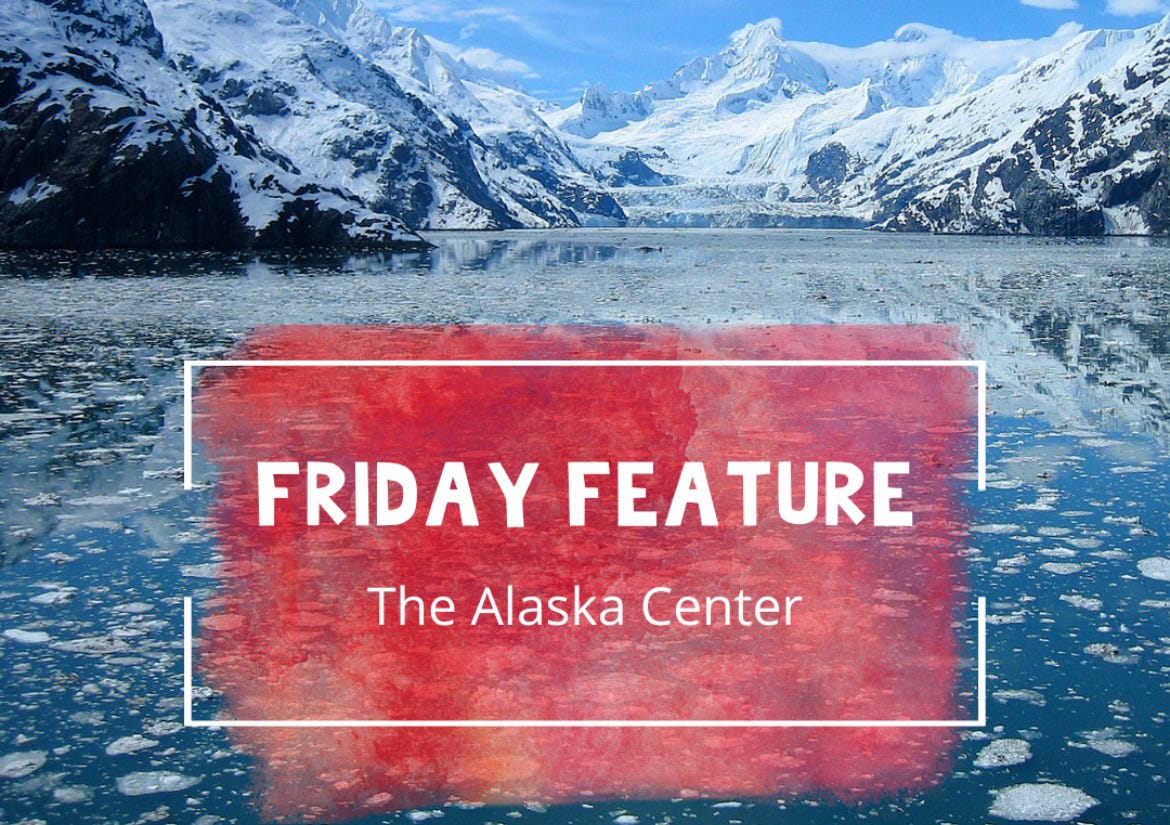Friday Feature: The Alaska Center
Hey everyone! Welcome back for another Friday Feature. This week we are highlighting a group focused on political activism and community engagement, and I got the honor of speaking with Leah Allis Moss, the Communications and Creative Director for The Alaska Center (AKC). As you might’ve guessed, The Alaska Center is based out of Alaska, and most of their work is focused in the South Central Valley and Fairbanks. With that said, they also do a significant amount of rural outreach, and work to engage people across the state in climate action.
Leah described their programs and campaigns as “diverse and far reaching,” and walked me through some of the main focuses of the nonprofit’s work. First, they explained that a major focus of AKC is legislation and making sure that the people have representatives in office who listen and support the ideals of the Alaskan communities. She also highlighted the work that AKC does to encourage people to vote. This includes holding community events such as a Ballot Box Bash that encourages people of all backgrounds to come and celebrate and drop off their ballots, and it also includes running educational events on what voting is like and campaigns to fight efforts to restrict voting.
What I love the most about AKC is how their various initiatives intertwine with each other. For example, another main focus is gaining clean energy for the communities, and AKC uses energy legislation activism to help make this happen. The current campaign that AKC is running is focused on a Community Solar Build to make clean energy accessible to more people than just homeowners. Their Solarize program works to create community solar panels and make them a group effort. In addition, AKC is also supporting homeowners by working on a solarize program in Fairbanks and South Central Valley to make solar installation accessible. On top of all this, The Alaska Center also puts in efforts to get candidates who support clean energy into office. When I asked Leah what their favorite part about AKC is, she expressed her excitement at the prospect of building sustainable union jobs in Alaska for a creative and more stable future for the Alaskans from the level of investments that are to come from the Inflation Reduction Act.
Leah also emphasized the importance of stopping wasteful bycatch of salmon in Alaskan communities. AKC is working to ensure bycatch is well-regulated to avoid harm to the local fishing communities and the sustainability of the local fisheries. In the Eklutna River, the dam has been blocking salmon populations from moving through, and so AKC is a part of the Eklutna River Restoration Coalition which is working to restore the river and its salmon population by getting the salmon running again for the people in the communities who are sustained by them. There are many options to restore the river flow, and AKC has an action list that people can get involved in. This is hugely important to the people of Alaska, so this also intertwined with AKC’s focus on democracy, since candidates need to share these values.
The last major program that Leah and I discussed was the youth program Alaska Youth for Environmental Action, a program that has been running for 25 years. In order to stay true to their focus on equity, AYEA hosts two summits a year, and, depending on community support, works to bring youth from across the state together. These summits offer the young people tools of advocacy so that they can be the “change leaders for their communities,” as explained by Leah. I loved talking with Leah about youth activism because it led to a whole discussion on how the youth of today offer hope that leadership will be held accountable. While people are working to do so today, the energy for climate action only seems to be building, and this push for agency and equity is growing.
Overall, equity is a large goal of AKC. With such beautiful and complex landscapes and communities, AKC also does their best to incorporate Indigenous knowledge and consult with their indigenous partners as much as possible. Leah mentioned how the intent is always to heal and not harm, so they work to deconstruct the systems that have been created and enabled by Alaska’s colonial history. AKC continues to learn how to use their privilege to “amplify the voices of Alaskans most impacted by climate change, and work to push for change that works with and for communities.”
If you are interested in supporting The Alaska Center, donations are always helpful. You can also take action to help out with issues pertaining to climate change in Alaska, elevate the stories that AKC promotes, and work with them. I am grateful to have gotten the chance to talk with Leah at The Alaska Center, and I encourage you all to check out their page to learn more. Thanks for reading, and stay tuned for more newsletters!


